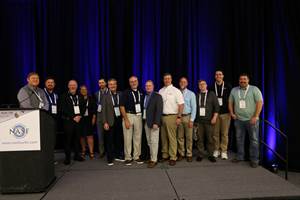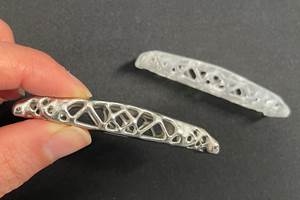Lombard Technologies Is the Nation's Largest Finishing Company
Lombard Technologies, Inc., the nation's largest independent surface engineering and finishing company, was formed through the merger of six premier companies in the surface finishing industry...
Recently, the principals of Lombard Technologies and the six finishing companies held board meetings in Troy, MI. Afterward, Products Finishing met with the group for a roundtable discussion about the merger, its management and its future. The Q&A session follows.
The combined company will have locations throughout the United States serving the automotive, electronics, computer, telecommunications, aerospace, defense and consumer goods industries.
The initial group of Lombard operating companies includes: Alexandria Metal Finishers of Lorton, VA, with Walt Prichard, president and Larry Capoccia, vice president and general manager; All Metals Processing of Orange County, CA with Stephen Sellwood, chairman and George Derby, president; Gene's Plating Works of Los Angeles, CA with Harry Levy, president and John Whitney, vice president; Howard Plating Industries of Madison Heights, MI with Paul L. Sossi, CEO and Paul A. Sossi, president; Mid-Atlantic Finishing of Capitol Heights, MD with B.J. Mason, president and Troy Mason, vice president; and Whyco Technologies of Thomaston, CT with Mark Hyner, president and Robert Hyner, vice president.
Lombard Technologies, Inc. is headquartered in Bethesda, MD. Lombard was formed by management and HIG Capital Management. HIG is a leading private equity firm located in Miami, FL. Since its inception, it has invested in more than 40 businesses with aggregate sales in excess of $2.5 billion. HIG will continue to support Lombard management with the financial and operational resources needed to achieve its strategic objectives.
Q. How did you find out about the metal finishing industry?
Bruce Bradley (Lombard Technologies): Several members of the Lombard corporate team did some research for the associate executive director of NAMF, Steve Vernon. He provided us with information about the finishing industry, including names of two plating shop owners in the Washington D.C. area. Our firm is based in the area. He suggested we talk to B.J. Mason (Mid-Atlantic Finishing) and Walt Prichard (Alexandria Metal Finishing) about the plating industry. Because B.J. Mason is past president of the AESF and one of the three members of the industry Government Affairs Council, he knows the industry, the science, and he is known and respected by the active industry leaders.
Well, it just so happened that when I talked to B.J. Mason in the spring of 1998, he said, "You know, we (the industry) have been talking about this among ourselves and given serious thought to doing something." My team's abilities differ from those of the finishing industry. We are more oriented toward strategy, operation consulting and integration, as well as capital formation. B.J. and Walt know their industry really well, but said they didn't know as much about what we know about putting together a plan. That is how it really started.
Q: What prompted you to look into the finishing industry in the first place?
Bruce Bradley: I went to Stewart, FL, to check out a new technology that was being considered as a replacement for hard chrome. I believe it was a nickel/boron. It was developed by a chemist whose dad owned a metal finishing shop. We brought it back to Washington on behalf of his plating company for further testing. We had Ford, the Air Force, a large government contractor and the Department of Defense evaluate it. It turned out that it had potential as a replacement for hard chrome, but it was too expensive.
So, as a result of that, we met and started asking questions about this metal finishing industry, which we can only describe as being unnoticed but extremely important.
Q: Who are the principals of Lombard Technologies?
Bruce Bradley: Lombard is led by a combination of chief officers from my original team, the presidents of the operating companies, and HIG Capital Management, our financial partner. HIG is a private equity group out of Miami. Lombard's management team, the former owners of the founding companies, and HIG Capital are represented on the Board. Of course, the core of Lombard Technologies is the founding companies. Each has a key role in advising Lombard's management team on key issues, while giving corporate management access to their collective experience and wisdom.
Q: Who will manage Lombard Technologies?
Bruce Bradley: We are in the final stages, with the assistance of an executive search firm, of choosing a chief executive officer with both industry and management experience. Currently, Rick Trudo is serving as interim CEO. The Lombard team also consists of myself, as Chairman of the Board, Bob Carlstom as chief operating officer and Roy Chapman as chief financial officer. Our general counsel is Joel Silver, and Bill McGowan serves as our regulatory officer. In addition, Mark Hyner of Whyco Technologies is the executive vice president in charge of plating operations, and Rob Hyner, also from Whyco, is the vice president for marketing. As we grow, we will continue to expand our team to fully meet the needs of our customers and the market.
Our strategy, however, is to have the individual companies maintain their identities. They will continue to run their businesses. We will ask just two questions: How can we help you run your company? What can we do for you that will enable you to work together?
Q: So, will these six companies change their names to Lombard Technologies?
Bruce Bradley: Certainly not at this point. Each company will retain its name; however, they will prominently display their position as "A Lombard Technologies Company." Each of the companies has built a solid reputation for consistent performance and quality services delivered in a timely fashion. We expect to capitalize on these reputations by maintaining and expanding their position in the market. We don't want to interfere in the relationship each company has with its customers, employees or community.
Q: Could one of the owners tell me what his benefit is from this merger?
Mark Hyner (Whyco Technology): In a single sentence, it is an opportunity to grow my business and be part of a group that will revolutionize the industry. Opportunities abound. Whyco now has five partners with which we will share technology and capabilities quickly. So the technology that Whyco holds will be shared with the other five. You have been to my plant, Bev, and know the fastener technology we have been working on for customers out of the Midwest. I've been desperate to find another plating source. I now have one in Howard Plating (Detroit, MI). We are doing things jointly.
Some of the research projects, such as one we are working on with the hard chrome in a clean room environment, is a perfect example. We earned that project by word of mouth. I now have salesmen coast to coast that can tell people what Whyco is working on and what it is capable of. Sales people across the country can refer special technical research and development projects to us that we can develop for our sister companies and ourselves. This is a major advantage for our customers.
From a financial point of view, the Lombard opportunity is a way to sell my company and keep it too. I certainly was not ready to retire. This was a way to ensure my financial future and take an active part in making something grow.
Q: How will the Lombard companies operate?
Bob Carlstrom: Lombard will not be a loose confederation of companies. It will be an integrated group that operates as a team in a coordinated fashion. Integration starts at the leadership level and includes horizontal communication, planning and coordination across the Lombard companies. Hence, the leadership among the companies is joined behind the Lombard concept, and the corporate infrastructure will provide for integrated marketing, technology sharing, management information, capital planning and environmental management. However, each operating company will retain its current market identity, yet be recognized as a Lombard Technologies company.
Q: Will the company go public (stock)?
Bob Carlstrom: That is our plan, which will be determined by the growth of the company. We anticipate continued growth through acquisition as well as organic sales growth. And it is a function of the timing of the market, and our ultimate evaluation in terms of market incentive.
Bruce Bradley: We believe the growth leader, the global industry leader for the surface finishing industry, will be a multi-billion dollar company. We think that we are well positioned, based upon where we are and the plan we have adopted, to be that company.
Q: Do you plan to make more acquisitions? Also, do you plan to make acquisitions in other parts of the U.S. where you do not have a presence yet, such as in the South?
Bruce Bradley: We have an ambitious acquisition plan for the U.S. for the year 2000 and 2001. We also expect during this time to increase the ability of OEMs and Tier-I suppliers to outsource their captive plating operations. We will also look to make international acquisitions.
Q: Do you think you will have difficulties in purchasing captive shops? What types of issues do you face?
Mark Hyner: Again, when you were at my shop, you saw some exclusive things that were being done for one customer. That is the type of finishing setup we are talking about. One of the difficulties we have had with major accounts is convincing them to trust their work to a relatively small 250-person plating shop. We may be big in the plating industry, but we are still small in the greater scheme of things.
Now, I am a much larger business. I can go to these accounts and assure them that my associated organizations are there to support the effort. I can tell them that Lombard has plants around the country that can set up processes for them.
This is a way captive-plating shops can get out of the plating business in comfort and benefit from the technology of six plating companies.
We added up the years of plating experience during our meetings today. There were more than 500 years of plating experience in that room. That is just in this starting core group.
Q: Even though some companies have overlapping operations, each company will continue to provide the processes it already provides, correct?
Paul Sossi (Howard Plating): Absolutely. Although we have some of the same operations, we can share technologies and customers. If we get a job that is not geographically close, yet it is close to a sister company, we can send them there. It is a benefit to our customers. That is who benefits the most from this merger.
With all the mergers and acquisitions today, customers want better quality at a lower price. We can offer that to them because we can negotiate better chemical prices, we can share technologies that we do not have to spend a lot of money researching and developing. It is a benefit to the customer, which is a main part of our growth strategy.
Q: Will you provide any standardized pricing to your customers?
Bob Carlstrom: We will always be competitive, but our primary focus is on providing premier quality and timely service at a reasonable price. Quality is so important; cheapest is not always the best.
Q: How do you think a national presence will help Lombard?
George Derby (All Metals Processing): We went to see a major aerospace supplier in California. It is hard to describe the customer's reaction when we went in and told them that All Metals Processing is all that is has been, plus.
Our company is very customer focused. We typically do not have unique processes, so customers are not forced to use us. Our strong points have been great communication, great service and good quality, which is a given. But this gives us opportunities to get into processes without pioneering them ourselves. Most of the finishing processes are represented in these six companies. And with these six companies, I don't know how you could have a new finishing problem or something that one of these plating shops has not faced before.
We presented this to the customer, and the customer then provided us with even more reasons for the merger.
They said, "This has been needed for a hundred years. Why did it take so long to do it?" They started telling me, "You mean we can find out about doing this type of process? We can get answers from a single source that will sit with our engineers and tell us what we are up against?"
They are elated because it is support they do not have now. If I wanted to hire support for a process I do not offer, the customer and my choice was to hire a consultant. That is no longer necessary. Now, you approach the customer and show them how to do it and keep the business local. We tell them that we will run the development process. If they like the results, we tell them what equipment to put in. We start up the process, instead of falling on our face with a new customer and a new process, now we are a major resource, and the customer continues to come to us for service.
B.J. Mason (Mid-Atlantic Finishing): Your customer is looking for a source that can supply his needs on a regular basis. People sometimes get leery because they do not see the back up. They worry about something happening. They wonder how will they get their product delivered on time. Mid-Atlantic has a back up in Alexandria Finishing, but not everyone has that convenience. I was a bit reluctant about telling the customers much in the beginning, but the rest of the group was enthusiastic about it, and it turned out to be a good thing to tell the customers. They all love it.
As an example, General Motors was afraid to outsource to a particular $40 million plating company in Southern California because of what might happen if this company…wasn't around. A company such as Lombard changes all of that.
Bob Carlstrom: The range of our customer base cuts across aerospace, automotive, defense, electronics, telecommunications, computer, medical devices and consumer goods. We have the capacity in both technologies and facilities, as well as the resources both technical and generic to readily resolve their problems.
Q: Why do you think other plating companies will want to join Lombard?
Bruce Bradley: This is an opportunity to achieve two objectives. The owners really diversify their personal portfolio and they get a chance to participate in a market leading, rapidly growing company. Typically, the deal provides the seller some cash today as well as stock in Lombard, which we believe has the potential for significant value appreciation.
Lombard offers plating company owners a chance to sell their company and keep it. We need the owners to stay to continue to run the companies. Most of the companies were started by their fathers and/or grandfathers. The current owners are saying, "We like the plating industry too, but we would like to diversify our financial portfolio. Take a risk with my career, not unlike the risk my father took starting the business, by taking the business to a national or international level."
The owners want a new professional challenge because now they can delegate the day-to-day part of the operation to their managers and spend more time contributing to building a multi-million dollar international company.
Q: What are your environmental plans?
B.J. Mason: We will be the top environmental plating company. I will maintain all my work with the associations, government relations and other groups I work with. We have a chief compliance officer and environmental lawyer. We are already involved in the Environmental Technology Verification Program. We will maintain all current involvement and probably become even more involved in programs.
Paul Sossi: Several of us have already moved toward ISO 14000.
Q: How much standardization will there be among the companies?
B.J. Mason: We have put working groups together to focus on certain key priority areas. One is environmental, safety and health. We are going to look at each company's philosophy and come back with a system for Lombard. It may be based on ISO 14000, or it may be an even better program. Either way, it will be a very strong environmental policy.
Q: What about standardization of quality standards?
B.J. Mason: Well, what is happening today is that shops are either QS 9000 or 9002 certified, and we will continue that.
Bob Wolfsberger (All Metals Processing): We must comply with aerospace companies' specifications. We may not necessarily need to meet ISO, but we will meet the specifications for the industry we are working with. Now, we can share that specification information with all of the other companies.
George Derby: From a customer standpoint, that is what I think is so exciting with regards to putting this whole program together. So many of these large companies are doing business with platers, and they weren't sure if these platers were environmentally compliant, etc. Now they know they are doing business with a company that is taking care of that end of the business.
Q: Will the sales force be nationwide?
George Derby: We will each keep our own sales force, but the beauty of it is that we can cross sell. All Metals sales people are aerospace oriented. A big market that we serve is in San Diego. However, the San Diego market has a product in it that produces 98% of what is used in the U.S. for one industry…golf. Our sales personnel don't call on those major companies. They are huge companies with tremendous needs, particularly for speed. Now our sales people can help them connect with someone in our industry that does decorative chrome or hard anodizing. They can get it fast. We have the technological support to work with them and suggest certain finishes to deal with all the fertilizers on the golf course or other finishes that may solve certain problems. The Lombard companies have coatings that the golf industry knows nothing about. And we can provide them a unique look, which is also important to this industry. This is really an incredible business. Now we have a product to offer these companies.
Q: Does anyone have anything to add?
Mark Hyner: When I told my people about the merger, the first question out of their mouths was, "Will there be any layoffs?" I said, "No." Next was, "Mark will you be here?" I said, "Yes." The next question was, "When can we get stock."
Seriously though, I look forward to taking my company to the next level. I will expect to learn a lot managerially from my associates, such as George Derby. I thought Whyco was good at communications. But I have not been to a plant like his, and firmly believe that we at Whyco can benefit materially from the experience and expertise of our colleagues at "Team Lombard."
Related Content
Successful South African Plater Beating the Odds
Remaining focused on quality and reliability, Team Plating Works stays profitable in a volatile and challenging economy.
Read MoreProducts Finishing Reveals 2023 Qualifying Top Shops
Each year PF conducts its Top Shops Benchmarking Survey, offering shops a tool to better understand their overall performance in the industry. The program also recognizes shops that meet a set of criteria to qualify as Top Shops.
Read MoreProducts Finishing Reveals 2024 Qualifying Top Shops
PF reveals the qualifying shops in its annual Top Shops Benchmarking Survey — a program designed to offer shops insights into their overall performance in the industry.
Read MorePossibilities From Electroplating 3D Printed Plastic Parts
Adding layers of nickel or copper to 3D printed polymer can impart desired properties such as electrical conductivity, EMI shielding, abrasion resistance and improved strength — approaching and even exceeding 3D printed metal, according to RePliForm.
Read MoreRead Next
Delivering Increased Benefits to Greenhouse Films
Baystar's Borstar technology is helping customers deliver better, more reliable production methods to greenhouse agriculture.
Read MoreA ‘Clean’ Agenda Offers Unique Presentations in Chicago
The 2024 Parts Cleaning Conference, co-located with the International Manufacturing Technology Show, includes presentations by several speakers who are new to the conference and topics that have not been covered in past editions of this event.
Read MoreEpisode 45: An Interview with Chandler Mancuso, MacDermid Envio Solutions
Chandler Mancuso, technical director with MacDermid Envio discusses updating your wastewater treatment system and implementing materials recycling solutions to increase efficiencies, control costs and reduce environmental impact.
Read More




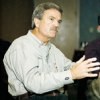
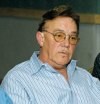

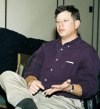
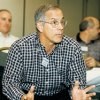








.jpg;maxWidth=300;quality=90)



